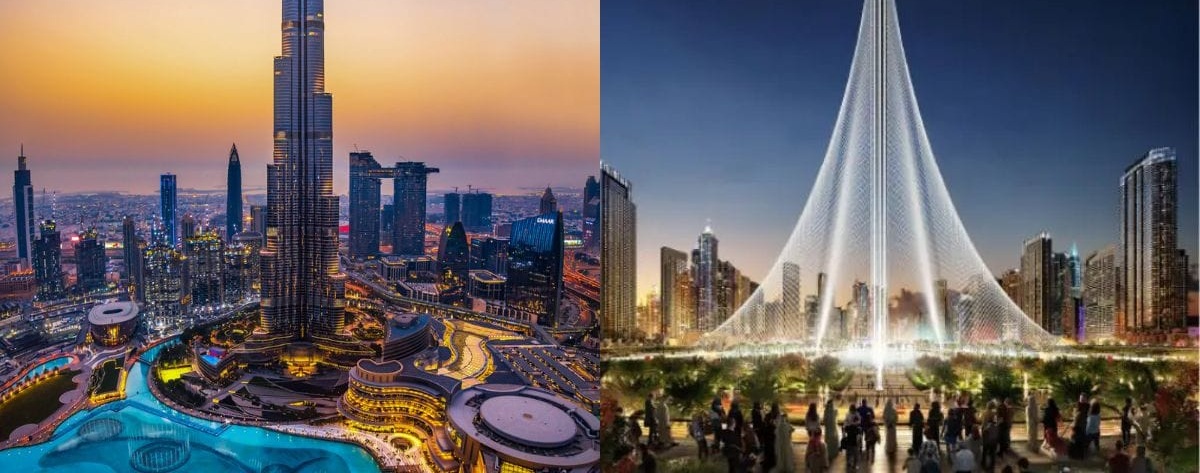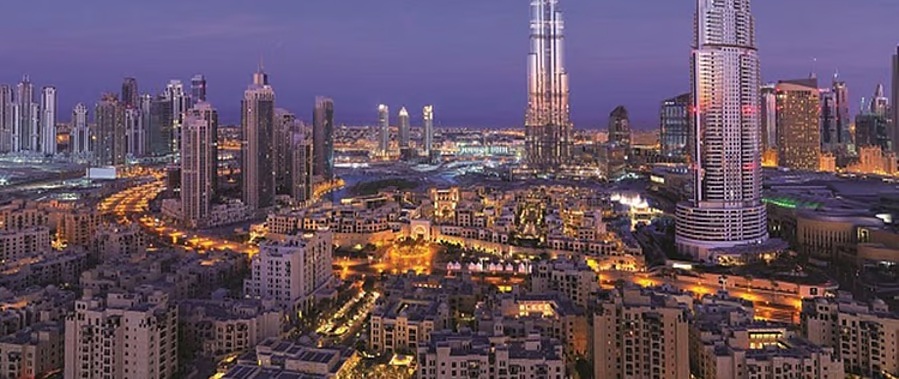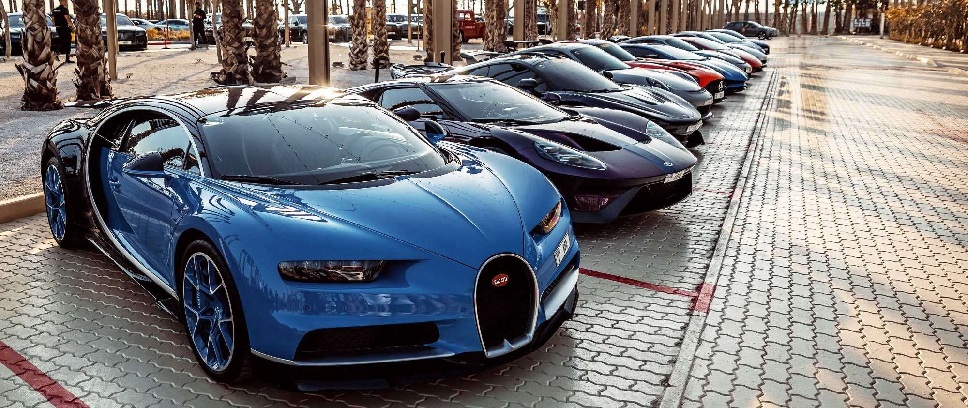Smart Homes in Dubai 2025: A New Era of Intelligent, Luxurious Living
Monday, 14 April 2025
Dubai, a city known for turning visionary ideas into reality, is once again leading the way—this time in redefining how we live. Welcome to the world of smart homes in 2025, where technology, comfort, and luxury come together to create personalized living experiences like never before.
With the rise of AI-powered solutions, sustainable designs, and intuitive automation, smart homes in Dubai are setting a new standard for modern living—not just in the Middle East, but across the globe.
Table of Contents
- What Is a Smart Home?
- The Rise of Smart Living in Dubai
- Top Smart Home Features in Dubai
- The Bright Future of Smart Homes in Dubai
- The Rise of Sustainable Smart Villas and High-Tech Apartments
- How Automation & AI Are Shaping the Real Estate Market
- Frequently asked questions
What Is a Smart Home?
A smart home is more than just a tech-enabled space—it’s a lifestyle. These homes are designed to simplify daily life through automation, connectivity, and artificial intelligence. From adjusting lighting to securing your home with a simple voice command, every detail is crafted for maximum comfort and convenience.
Smart Homes Can Seamlessly Manage:
- Lighting and temperature control
- Home security and surveillance
- Appliances and energy use
- Entertainment systems and smart devices
By learning your habits and preferences, these homes become smarter over time—offering tailored experiences that match your lifestyle perfectly.
The Rise of Smart Living in Dubai

Dubai’s commitment to innovation is clearly reflected in its smart home boom. Thanks to the Smart Dubai initiative, launched in 2013, the city has embraced digital transformation in all aspects of life—especially housing.
Today’s homeowners are looking for more than aesthetics—they want technology that enhances daily living. Developers are now integrating cutting-edge features like AI-powered climate control, intelligent lighting systems, and smart security tools into both villas and high-rise apartments across Dubai and Abu Dhabi.
Top Smart Home Features in Dubai
Smart homes in Dubai are built with the future in mind—prioritizing ease, safety, and sustainability.
1. Lifestyle Enhancement Through Automation
From adjusting the thermostat to brewing your morning coffee, automation gives you full control with just your voice or smartphone. Smart homes offer personalized comfort, routine-based automation, and even mood-based settings for lighting and entertainment.
2. Intelligent Security for Peace of Mind
Feel safe and secure with features like facial recognition entry, real-time video monitoring, and remote locking systems. Whether you’re at work or on vacation, you can always stay connected to your home.
3. Energy Efficiency That Saves You More
Smart technologies are designed to use energy wisely. Adaptive lighting, eco-friendly appliances, and smart thermostats ensure efficient power usage, reducing both your bills and your carbon footprint.
The Bright Future of Smart Homes in Dubai
Dubai continues to lead the smart living movement, with exciting developments ahead:
1. Ongoing Innovation and Accessibility
As technology advances, smart home systems are becoming more affordable, intuitive, and easy to install. From students competing in solar home design contests to government-backed sustainability programs, innovation is everywhere.
2. Real Estate Growth and Buyer Demand
Smart homes are becoming a top priority for property buyers and investors. Features like automated climate control, integrated security, and energy-saving systems are now viewed as essential, driving both demand and property value upward.
3. Dubai as a Global Smart City Model
Dubai’s success with smart homes serves as an inspiration for cities worldwide. By combining luxury with intelligence and sustainability, the city showcases what’s possible when forward-thinking design meets technology.
The Rise of Sustainable Smart Villas and High-Tech Apartments
Dubai and Abu Dhabi are leading a green revolution in luxury real estate. The smart homes of 2025 are as sustainable as they are luxurious.
- Smart Villas: Communities like Mohammed Bin Rashid City, Tilal Al Ghaf, and Al Reem Island now feature villas powered by solar energy, equipped with climate-responsive systems that adapt to reduce energy waste.
- Net-Zero Apartments: In urban zones like Downtown Dubai and Saadiyat Island, developers are rolling out net-zero residential buildings where water recycling systems, solar façades, and energy-efficient AI optimize every watt.
- Green Certifications: LEED and Estidama Pearl Ratings are now baseline requirements for luxury developments, often integrated with blockchain-based sustainability tracking for transparency.
How Automation & AI Are Shaping the Real Estate Market
The impact of smart home tech isn’t limited to the walls of the home—it’s transforming the very real estate market itself.
- Home Automation as a Selling Point: Properties equipped with smart ecosystems from brands like Control4, Crestron, or Google Home Ecosystem see higher demand and valuations. Buyers in 2025 aren’t just looking for a pool—they want AI climate control and biometric entry systems.
- Smart Security: Facial recognition entry, remote-controlled surveillance, and predictive threat detection using AI have made home security both discreet and robust. These features are now standard in high-end homes.
- AI-Driven Real Estate Platforms: Buyers and investors are using AI-powered platforms to browse, compare, and even tour properties through immersive AR. These platforms also analyze investment potential based on market trends, location data, and property features—streamlining the entire buying process.
Dubai’s smart homes in 2025 are more than just a glimpse of the future—they’re the present. With intelligent automation, eco-conscious design, and next-gen security, these homes are setting the stage for how we will all live in the years to come.
Frequently Asked Questions (FAQs)
What is a smart home?
A smart home is a residence equipped with technology that allows you to automate and remotely control systems like lighting, climate, security, and appliances. These homes often use AI and IoT to provide a more personalized, efficient, and comfortable living experience.
Why are smart homes popular in Dubai?
Dubai is a global innovation hub, and residents value both luxury and convenience. Smart homes offer advanced features like energy efficiency, enhanced security, and lifestyle automation, making them highly desirable for modern homeowners and investors.
Are smart homes energy efficient?
Yes, smart homes are designed to reduce energy consumption. Systems like smart lighting, automated thermostats, and solar-powered solutions help minimize waste and lower utility bills—supporting Dubai’s sustainability goals.
Are smart homes safe from cyber threats?
Leading smart home technologies in Dubai prioritize security. Brands like Apple, Google, and Amazon include robust encryption and privacy features. Additionally, Dubai enforces strict cybersecurity regulations to protect user data.
How much does it cost to install smart home technology?
Costs vary depending on the size of the property and the level of automation. While initial investment can be high, the long-term benefits—like energy savings, increased property value, and convenience—often outweigh the setup costs.
Can smart home systems be integrated into older homes?
Absolutely. Many smart home solutions are designed for retrofitting and can be added to existing homes with minimal structural changes. Wireless systems make integration even easier.
How do smart homes affect property value?
Smart homes often have higher market value due to their energy efficiency, security, and modern appeal. Buyers in Dubai increasingly prefer homes that are future-ready and tech-integrated.
What’s next for smart homes in Dubai?
The future includes even more advanced AI, stronger integration between systems, and increased sustainability. Dubai aims to be a global model for smart living—paving the way for other cities to follow.





